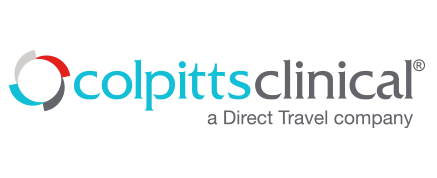Expert tips for travel with medical needs
Navigating Travel with Medical Needs: Expert Tips from Colpitts Clinical Trial Coordinators
At Colpitts Clinical, our Travel Coordinators understand that traveling with medical equipment and medicines can be challenging, especially for trial participants. Whether it’s securing an ADA room, requesting wheelchair assistance at the airport, or ensuring the safe transport of medical supplies, careful planning is essential. Drawing from our years of experience, we’ve compiled a comprehensive list of tips to help you navigate the process and ensure a smooth and hassle-free travel experience.
- Check Regulations:
Different countries have varying regulations regarding the importation of medical equipment and medicines. Make sure to check the regulations of both your departure and destination countries well in advance to avoid any last-minute surprises. - Documentation:
Ensure you have all necessary documentation for your medical equipment and medicines. This might include prescriptions, letters from your healthcare provider explaining the necessity of the equipment or medicine, and any other relevant documents. - Packaging:
Properly pack your medical equipment and medicines to prevent damage during transit. Consider using sturdy cases or containers, and if applicable, carry-on items rather than checking them in to minimize the risk of loss or damage. - Medication in Original Packaging:
Keep your medications in their original packaging, especially if they contain prescription labels. This helps customs officials identify them easily and confirms their legitimacy. - Carry a Doctor’s Note:
A letter from your doctor detailing your medical condition, prescribed treatment, and the necessity of carrying specific equipment or medicines can be invaluable, especially during security checks. - Research Airline Policies:
Different airlines have different policies regarding carrying medical equipment and medicines. Some may require advance notice or specific procedures to be followed, so it’s essential to research and comply with their requirements. - Special Considerations for Liquid Medications:
If you need to carry liquid medications exceeding the usual limit for liquids in carry-on luggage, inform the airline beforehand and follow their guidelines for transportation. - Backup Plan:
Have a backup plan in case your equipment or medicines are lost, damaged, or confiscated. This might include carrying extra supplies or knowing how to access medical assistance at your destination. - Accessibility:
Ensure your medical equipment is easily accessible during your journey, especially if you require it during transit. This might involve organizing your carry-on luggage strategically or notifying airline staff for assistance.
By following these expert tips and adequately preparing for your travel, you can help ensure a smoother and less stressful experience when traveling with medical equipment and medicines. At Colpitts Clinical Trial Coordinators, we’re dedicated to supporting trial participants every step of the way, and we hope these tips will help you navigate the process with confidence. Safe travels.
More to Read
Leveraging A Global Network to Exceed Patient Expectations
Why Clinical Trials are Important
How Travel Services Build a Better Clinical Trial Travel Experience
Visit us on Facebook



